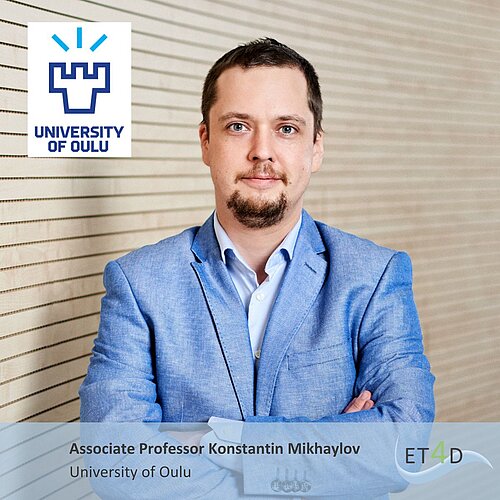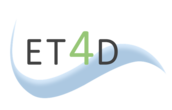Partner interview: Associate Professor Konstantin Mikhaylov
Does internet connectivity impact our ability to improve the digitalization of agriculture?

In a series of interviews, ET4D aims to highlight key issues in sustainable dairy farming. This is the second interview in the series.
The agricultural sector is facing a digital revolution where the implementation of dependable wireless communication systems is crucial, such as implementing Internet of Things (IoT) applications on dairy farms.
The Finnish ET4D partner University of Oulu is currently testing the internet connectivity on dairy farms.
We spoke with Dr. Konstantin Mikhaylov from the University of Oulu to gain insights into internet connectivity in advancing agricultural digitalization. The interview is prepared by Innvite ApS (Denmark).
Q1: How does internet connectivity impact the expansion of digital technologies in agriculture?
The Internet is clearly important as it is the basis of many digital technologies; however, data does not always have to go all the way to the Internet—much can also be done locally. Therefore, reliable, resilient, and efficient connectivity, both to the Internet and locally, is one of the three key pillars of digital agriculture technologies, not less important than computing and sensing.
Q2: What do you expect to achieve by testing internet signals?
First, we aim to understand the current status—what performance can we get with the radio access technologies available today in real-life outdoor and indoor locations? Next, we will rework the communication architecture to boost performance. The collected results are also crucial to understanding the need for and steering the development of new communication technologies for the agri-food sector.
Q3: What is your best advice for European dairy producers who wish to gain from emerging digital technologies?
I believe today's technology allows any site in Europe to be connected. However, there is no universal solution – depending on the environment and application, wired or cellular, IoT-grade or satellite communication, or even their combination may need to be used. Often, only the experiment shows what works best. Thus, the best advice I can give is – to talk to experts and let's collaborate!
About Konstantin Mikhaylov:
Konstantin is an associate professor of IoT communications at Centre for Wireless Communications CWC Oulu CWC, Finland. He has researched and developed connectivity solutions for various applications for over 15 years.
